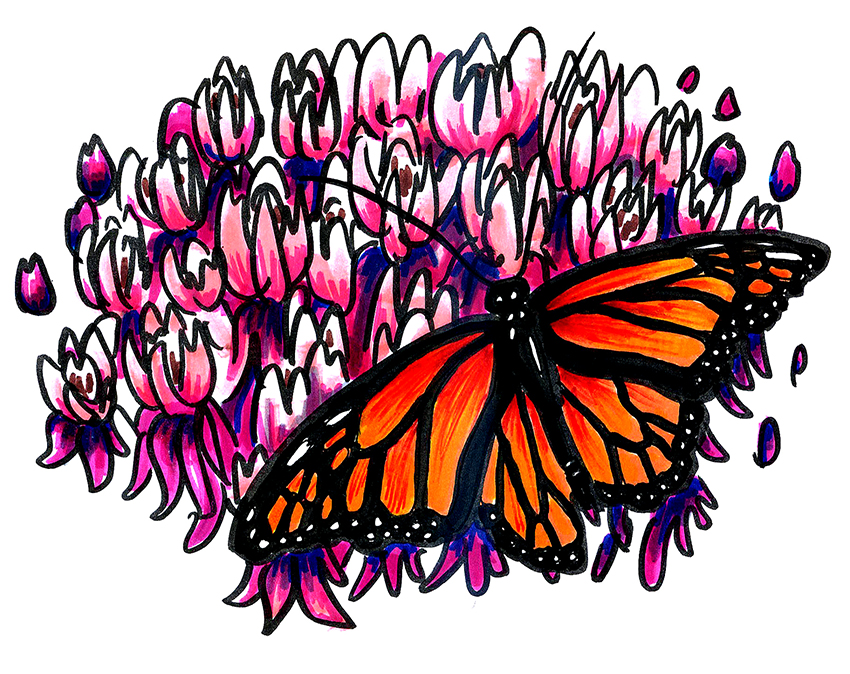Mental health workshop caters to undocumented students
February 22, 2022
This article first appeared in the Feb. 18, 2022 flipbook.
Immigrating to the U.S. from Mexico at age six, Marissa, an international relations and global studies freshman, spent her childhood in a border town where many surrounding adults worked as Border Patrol officers. Walking through the halls of her high school, Marissa, who wishes to remain anonymous, said she never felt completely comfortable with her undocumented status.
“Having (my status) in the back of my mind, I never felt safe talking about it, not even with high school counselors,” Marissa said. “I was scared to ask for help.”
Monarch Student Program, a program dedicated to supporting students who are undocumented, have temporary status or come from mixed-status families, launched in 2016 to promote community and positivity on campus. They offer services such as workshops, mentoring and advising to provide a safe space for these students to discuss their mental health struggles.
“Our mission is to create a supportive system — a network for these students to make sure that they’re supported in all aspects — that way they’re successful here at UT,” Monarch Program coordinator Alicia Moreno said.
The organization hosted a virtual workshop Jan. 26 led by Dr. Joanna Menendez, UT’s Counseling and Mental Health Center liaison for Latinx students, where they covered stress and self-care, specifically catering the content toward undocumented students.
“I really felt safe in that session,” Marissa said. “I felt comfortable talking about certain issues that I had. (It) really helped me open up.”
Moreno said Monarch aims to address the unique stressors undocumented students face, such as financial barriers, job insecurity, lack of access to legal services, fear of detainment or deportation and discrimination.
“There’s a lot of compounding stress,” Moreno said. “You add that on top of everything that documented U.S. citizen students experience with academic pressures, and it’s a lot.”
The workshop dove into the physical manifestations of stress as well as tools for stress management and self-care. In addition to resources and advice, Marissa said the workshop provided an inclusive environment.
“You can only talk about these stressors with people within your community because you’re sharing the same struggles,” Marissa said. “Opening up about those certain things took some weight off my shoulders.”
There are about 250-300 undocumented students at UT, according to Moreno, and over 427,000 undocumented students in the U.S, according to the Higher Ed Immigration Portal. She said Monarch strives to redefine UT’s campus as a comfortable place for these students.
“We’re all trying to disrupt what it means to be undocumented and make campus overall more accessible and supportive in this community,” Moreno said.
Moreno said Monarch collaborated with UT’s Counseling and Mental Health Center for the workshop in an effort to ensure that this community feels their mental health needs are valued.
“We want to cater our support and our services (to) students who need us,” said Stephanie Dodoo, associate director for CMHC’s Diversity Counseling and Outreach Specialists.
We’re not just serving one type of student. We want to be culturally informed (and) culturally responsive to our students’ needs.”
Monarch will hold another workshop, tailored to promoting entrepreneurship and innovation, on Feb. 22. Marissa said Monarch provides a safe space to embrace her identity and reach out for support.
“When I came to college, I said to myself, ‘You’re meeting new people. It’s a new space. Take the time to navigate who you are and embrace your status. Don’t be afraid to discuss it with other people,’” Marissa said. “That’s what I found so amazing about Monarch — there was that support system for students.”



